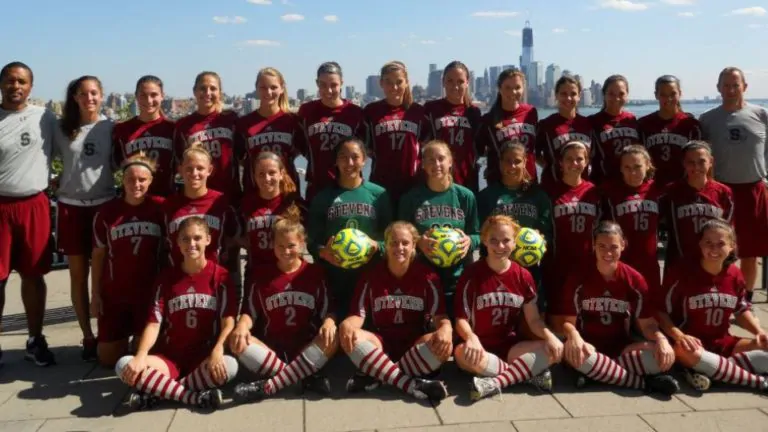Many high school student-athletes aspire to play their sport at the collegiate level. Those who are given the opportunity often focus on being a great athlete, while making their academics secondary. I play football for Yale, so I have an idea what coaches are going to ask potential recruits.
Coaches will ask athletes if they are physically ready to play at the college level. They will also ask what you are going to do to prepare themselves for the physical demands and time commitment. The coaches will ask about your academics, but their main focus is on your athletic abilities. Athletes can get caught up in the recruiting hype and forget what is truly important, and that is their academics. You need to be Eligible to be apart of the NCAA, and then you must maintain your eligibility.
High School Requirements
For a student-athlete to practice, compete, or receive athletic-related financial aid during their first year at DI and DII schools, the student must first complete these requirements: Graduate from high school, complete at least 16 core courses. For DI students, you need to earn at least a 2.3 GPA in core courses. Ten of these core courses must be completed within the first six semesters of high school, and seven of these courses must be in math, English, or science. You will need a 900 SAT or 75 sum score. For DII students, you will need a 2.20 GPA and an 840 SAT or 70 ACT sum score to be eligible at the DII level. The minimum GPA you will need is dependent on where you fall on the NCAA sliding scale.
Division I
16 Core Courses
4 years of English
3 years of math (algebra 1 or higher level)
2 years of natural or physical science (including one year of lab science if offered)
1 extra year of English, math, or science
2 years of social science
Division II
14 Core Courses (if enrolling before August 1, 2013)
16 Core Courses (if enrolling on or after August 1, 2013)
3 years of English
2 years of math (algebra 1 or higher level)
2 years of natural or physical science (including one year of lab science if offered)
2 extra years of English, math or science
3 extra years (if enrolling on or after August 1, 2013)
2 years of social science
3 years of additional core courses (from any category above, or in a foreign language, non-doctrinal religion or philosophy)
4 extra years (if enrolling on or after August 1, 2013)
A student can only receive credit for material in these classes once, so if a student takes a math class that repeats the material that was learned in a previous course, only one of the classes will count towards the NCAA eligibility requirements. Classes taught at a lower level, or with less rigor or depth, can't count as one of the 16 core classes. Courses that aren't “academic in nature” are also not included, and for specifics, go to the list of NCAA approved courses.
In addition to taking core courses, a student's ACT/ SAT scores must meet the NCAA requirements http://www.ncaa.org/student-athletes/future/test-scores. When a student has a lower GPA, their test scores have to be higher, and vice versa. Communication is essential when discussing grades with a recruiting coach because they know the admissions process exceptionally well for their specific school. If a student-athlete is struggling, they should communicate this with their high school coach or academic advisor. They will help the athlete with what steps they should be taking to bring their scores or grades up.
Adjustment to College Academics
The time and energy that you will need to be successful at your sport and academics will be more challenging in college then it is in high school. If your GPA and SAT/ACT are on point in high school, then college coaches will feel confident about taking a chance on you.
Coming into college and training for a sport while transitioning into a more rigorous academic environment is a challenge to most. In many cases, a team has a mandatory study hall for its players and paid tutors that are exclusive to the team. These resources depend on the program and school, so I recommend you ask the coach if this is something that their school offers.
Once in college, student-athletes have to keep up their GPA to remain NCAA eligible, this varies depending on the year and division. These are rules referred to by the NCAA as “Progress Toward Degree” requirements. In DI schools, students must have a GPA of 90% of the minimum GPA required for graduation (1.8 for 2.0 minimum) after freshman year to be eligible for sophomore year.
To be eligible for junior year after sophomore year, a GPA of 95% of the minimum GPA is required (1.9 for a 2.0 minimum). For senior and fifth-year students, the minimum GPA required to graduate is the same as the minimum to be eligible. In addition to this, the student-athlete must take six hours of classes each semester.
For more information on DI, see Division I Progress Toward Degree Requirements http://www.ncaa.org/about/division-i-progress-toward-degree-requirements. DII schools, the student must maintain at least a 2.0 GPA and take 9 hours of classes throughout all of their semester to be eligible. For more information on DII, see Division 2 Progress Toward Degree Requirements. For many college athletic programs, there are higher standards than the ‘NCAA's minimums, so the school will deem an athlete ineligible before the NCAA does.
For more information on athletic programs, target test scores, and GPAs, attempt to contact a coach or player, they do vary between schools and conferences. To secure eligibility and find more information on the NCAA's academic standards, go to the NCAA Eligibility Center High School Portal and create an account/login. https://web3.ncaa.org/ecwr3/
Updated: 12/2/19
* Originally published on January 18, 2018, by Devin Moore







